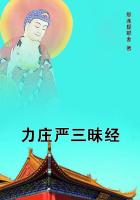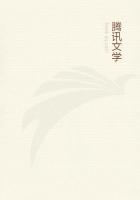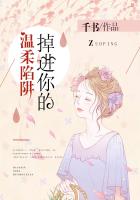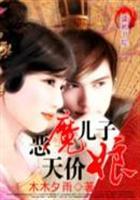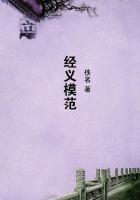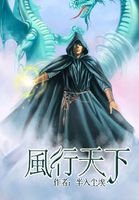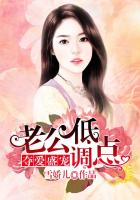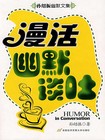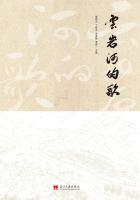The fourteenth century is interesting for the awakening, especially in Italy, of literature and art; for the wars between the French and English, and the English and the Scots; for the rivalry between the Italian republics; for the efforts of Rienzi to establish popular freedom at Rome; for the insurrection of the Flemish weavers, under the Van Arteveldes, against their feudal oppressors;for the terrible "Jacquerie" in Paris; for the insurrection of Wat Tyler in England; for the Swiss confederation; for a schism in the Church when the popes retired to Avignon; for the aggrandizement of the Visconti at Milan and the Medici at Florence; for incipient religious reforms under Wyclif in England and John Huss in Bohemia;for the foundation of new colleges at Oxford and Cambridge; for the establishment of guilds in London; for the exploration of distant countries; for the dreadful pestilence which swept over Europe, known in England as the Black Death; for the development of modern languages by the poets; and for the rise of the English House of Commons as a great constitutional power.
In most of these movements we see especially a simultaneous rising among the people, in the more civilized countries of Europe, to obtain charters of freedom and municipal and political privileges, extorted from monarchs in their necessities. The fourteenth century was marked by protests and warfare equally against feudal institutions and royal tyranny. The way was prepared by the wars of kings, which crippled their resources, as the Crusades had done a century before. The supreme miseries of the people led them to political revolts and insurrections,--blind but fierce movements, not inspired by ideas of liberty, but by a sense of oppression and degradation. Accompanying these popular insurrections were religions protests against the corrupted institutions of the Church.
In the midst of these popular agitations, aggressive and needless wars, public miseries and calamities, baronial aggrandizement, religious inquiries, parliamentary encroachment, and reviving taste for literature and art, Chaucer arose.
His remarkable career extended over the last half of the fourteenth century, when public events were of considerable historical importance. It was then that parliamentary history became interesting. Until then the barons, clergy, knights of the shire, and burgesses of the town, summoned to assist the royal councils, deliberated in separate chambers or halls; but in the reign of Edward III. the representatives of the knights of the shires and the burgesses united their interests and formed a body strong enough to check royal encroachments, and became known henceforth as the House of Commons. In thirty years this body had wrested from the Crown the power of arbitrary taxation, had forced upon it new ministers, and had established the principle that the redress of grievances preceded grants of supply. Edward III. was compelled to grant twenty parliamentary confirmations of Magna Charta. At the close of his reign, it was conceded that taxes could be raised only by consent of the Commons; and they had sufficient power, also, to prevent the collection of the tax which the Pope had levied on the country since the time of John, called Peter's Pence. The latter part of the fourteenth century must not be regarded as an era of the triumph of popular rights, but as the period when these rights began to be asserted. Long and dreary was the march of the people to complete political enfranchisement from the rebellion under Wat Tyler to the passage of the Reform Bill in our times. But the Commons made a memorable stand against Edward III. when he was the most powerful sovereign of western Europe, one which would have been impossible had not this able and ambitious sovereign been embroiled in desperate war both with the Scotch and French.
With the assertion of political rights we notice the beginning of commercial enterprise and manufacturing industry. A colony of Flemish weavers was established in England by the enlightened king, although wool continued to be exported. It was not until the time of Elizabeth that the raw material was consumed at home.
Still, the condition of the common people was dreary enough at this time, when compared with what it is in our age. They perhaps were better fed on the necessities of life than they are now. All meats were comparatively cheaper; but they had no luxuries, not even wheaten bread. Their houses were small and dingy, and a single chamber sufficed for a whole family, both male and female. Neither glass windows nor chimneys were then in use, nor knives nor forks, nor tea nor coffee; not even potatoes, still less tropical fruits.
The people had neither bed-clothes, nor carpets, nor glass nor crockery ware, nor cotton dresses, nor books, nor schools. They were robbed by feudal masters, and cheated and imposed upon by friars and pedlers; but a grim cheerfulness shone above their discomforts and miseries, and crime was uncommon and severely punished. They amused themselves with rough sports, and cherished religious sentiments. They were brave and patriotic.
It was to describe the habits and customs of these people, as well as those of the classes above them, to give dignity to consecrated sentiments and to shape the English language, that Chaucer was raised up.

